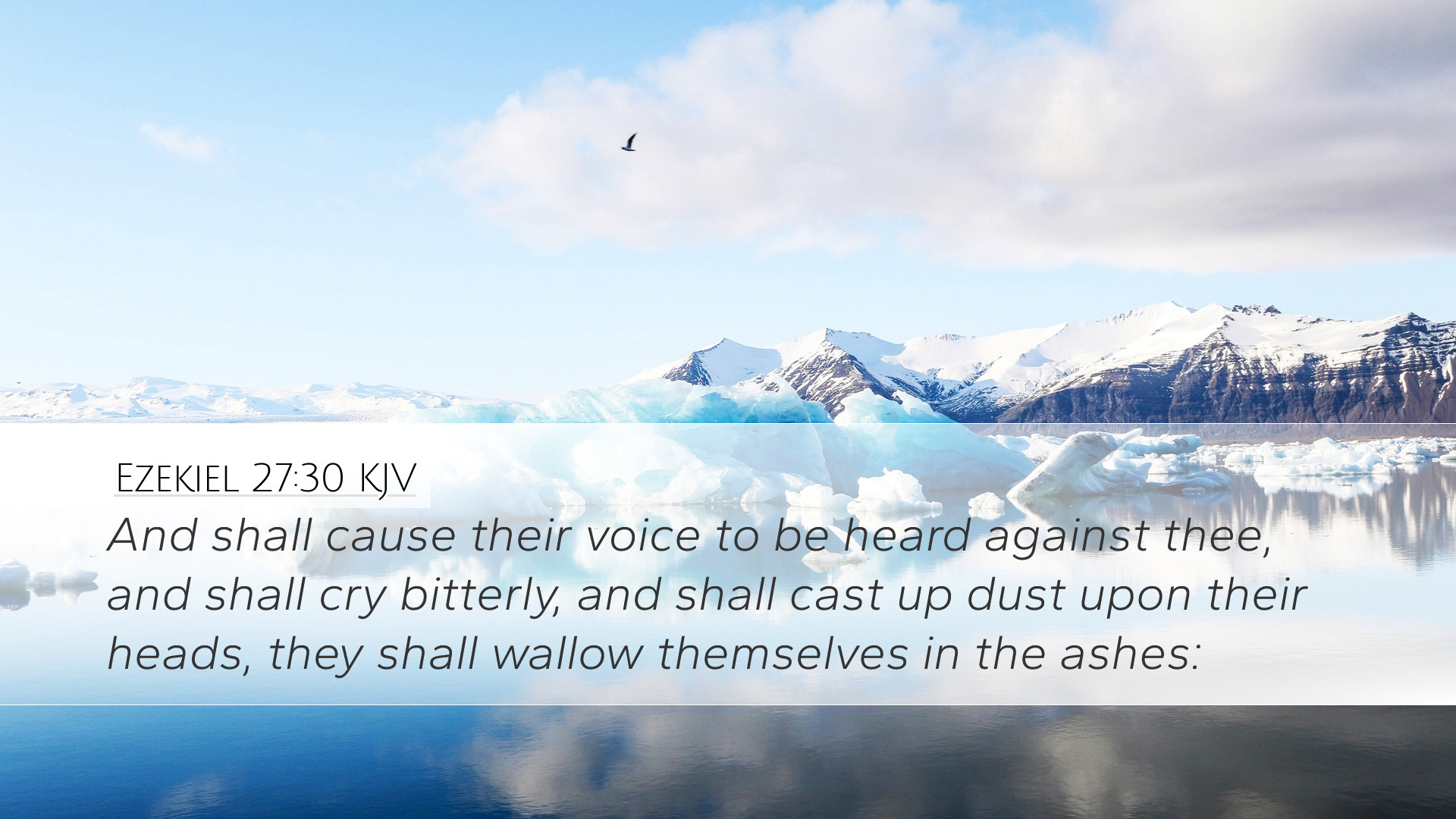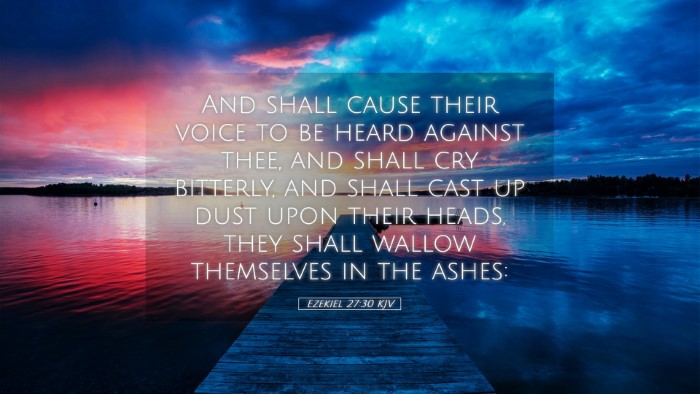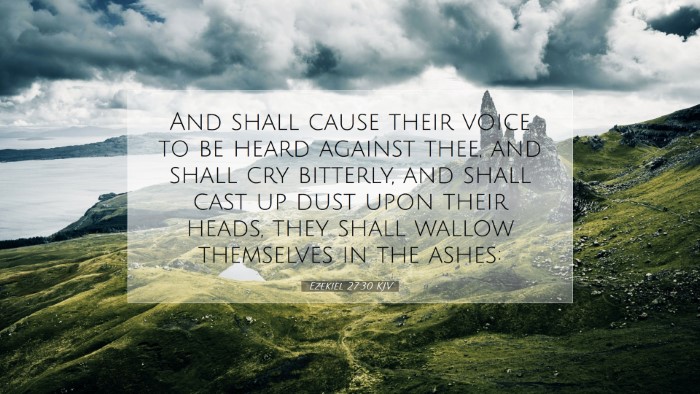Ezekiel 27:30 - A Commentary
Verse (Ezekiel 27:30, ESV): "And they raise a loud wail over you and cry out bitterly. They cast dust on their heads and wallow in ashes."
Introduction
The verse from Ezekiel 27:30 is part of a passage in which God, through the prophet Ezekiel, delivers a lament for Tyre—an important Phoenician city and a center of commerce. This text encapsulates the themes of mourning and destruction while illustrating the consequence of pride and fall within the economic and spiritual spheres.
Contextual Analysis
Understanding the context is crucial for a deeper appreciation of this verse. The surrounding chapters of Ezekiel discuss the impending doom of Tyre due to divine judgment. It serves as both a literal and symbolic reference to the fate that befalls nations that exalt themselves against God.
Historical Significance
Tyre was renowned for its wealth, maritime prowess, and luxurious lifestyle. It served as a vital trade hub in the ancient Near East, connecting various cultures and economies. However, the pride of Tyre led to its downfall, as evidenced by God’s prophetic word through Ezekiel.
Commentary Insights
Matthew Henry's Perspective
Matthew Henry emphasizes the gravity of Tyre's fall, noting the lamentation of nations and merchants that once thrived on its prosperity. He observes that the mourners express profound sorrow, symbolized by acts such as casting dust upon their heads—a traditional sign of mourning in ancient Near Eastern cultures.
- Henry points out the emotional weight of the wail, indicating not just loss but the recognition of the judgment of God that has rendered Tyre powerless.
- He further elucidates that this lament serves as a warning to others; that pride leads to destruction and that reliance on material wealth ultimately leads to downfall.
Albert Barnes' Insights
Albert Barnes offers a complementary analysis, focusing on the pitiable reactions of those affected by Tyre’s demise. He notes the symbolism of ashes within the cultural context, representing mourning and humility.
- Barnes explains that the physical actions of the people—casting dust and wallowing in ashes—illustrate the depth of their sorrow and despair. This gesture reflects an acknowledgment of their helplessness in the face of inevitable divine judgment.
- He also interprets this moment as a vivid display of the transient nature of earthly power and prosperity. Just as Tyre once stood magnificent, it was now reduced to ashes—a powerful testimony to the ephemerality of worldly success.
Adam Clarke's Thoughts
Adam Clarke expands on the lamentation, discussing its role within the broader scope of prophecy. He asserts that the wailing signifies not only the loss of a city but also the loss of trade, wealth, and the dealings through which various nations had prospered.
- Clarke highlights how the lamentation serves as a poignant reminder of the interconnectedness of nations; the fall of Tyre had repercussions that extended far beyond its own walls.
- Additionally, he points out that God’s judgment is comprehensive—impacting not only Tyre but also those nations that had become complacent and reliant on its success.
Theological Themes
The themes present in Ezekiel 27:30 are multifaceted, catering to various theological discourses:
- Judgment: The passage serves as a stark reminder of the certainty of God’s judgment against pride and sin. Tyre, despite its wealth, could not escape the decrees of the Almighty.
- Mourning and Loss: The emotional wail serves to demonstrate the profound loss experienced by the people and speaks to the human condition when faced with the consequences of sin.
- Transience of Earthly Power: The imagery of ashes reflects the biblical theme of the transitory nature of material wealth and power, inviting reflection on what is truly stable and eternal.
Application for Today
For pastors, students, theologians, and Bible scholars, this verse urges a re-evaluation of our own lives and the societies we inhabit. The lament of Tyre compels contemplation on human pride and the spiritual edifice built upon materialism.
Contemporary Reflection
In a world often defined by economic strength and self-sufficiency, this passage urges humility and dependence on God. It begs the question: what are the modern-day "Tyras" we might be lamenting? Are we, too, susceptible to pride in our achievements that may also lead to spiritual downfall?
Encouragement for Ministry
For those in ministry, this text serves as a call to lead with humility and to warn against the seduction of worldly success. It encourages a focus on eternal values over temporal gains, fostering a community that remains steadfast in faith despite external circumstances.
Conclusion
In summary, Ezekiel 27:30 offers a profound reminder of the consequences of pride and the fleeting nature of worldly power. The commentary from recognized biblical scholars deepens our understanding and calls us not just to reflect on the past, but to examine the present and prepare for the future. The lament of Tyre stands as an enduring warning, inviting both reflection and action as we navigate our own lives in light of eternity.


